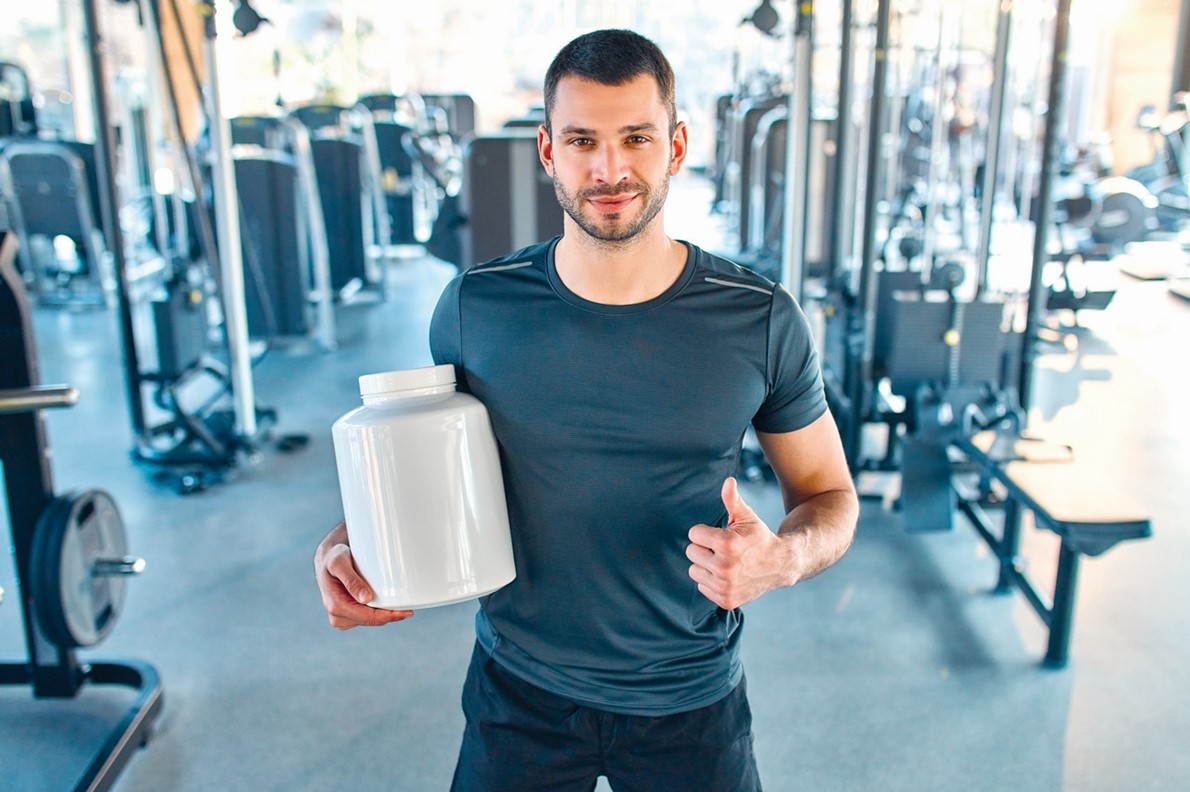Going to the gym day in and day out can be exhausting; after working long hours
or going to school, it can be hard to find the energy. That is why many
companies have invested their resources into developing supplements known as
pre-workout, which can give you that extra boost you need. Although many users
report subjective benefits, understanding the science behind pre-workouts and
any potential concerns could help you make informed decisions about using them
in your fitness regimen.
اضافة اعلان
Pre-workouts are
multi-ingredient dietary supplements whose main purpose is to help boost your
energy levels and athletic performance. Most commonly, they come in the form of
a dry powder you mix with water and drink 30–60 minutes before working out.
According to the general consensus, pre-workouts are safe and do not appear to
lead to any medical issues for healthy people. However, no long-term studies
have been conducted on the topic of pre-workouts, and some people may experience
adverse effects depending on their physical condition.
Ingredients
The term pre-workout supplements covers a broad range of products made by several different companies, each
with their own specific formulas. However, the majority of pre-workouts tend to
have similar ingredients, although the quantity of each ingredient may vary.
The most common ingredients found in pre-workouts include nitric oxide
precursors, caffeine, creatine, beta-alanine, branched-chain amino acids, and
vitamin Bs.

Nitric oxide is a
simple molecule commonly found in the body but has a profound effect on our
cardiovascular system. It is naturally produced and causes blood vessels to
relax, resulting in a widening of the blood vessels (vasodilation) and
therefore increased blood flow. Vasodilation can help reduce blood pressure
while also improving the delivery of nutrients and oxygen to your muscles.
Pre-workouts often contain compounds that the body later converts into nitric
oxide such as L-arginine, L-citrulline, and even dietary nitrate sources, such
as beetroot extract.
Caffeine is widely
known for its effects as a stimulant and is commonly consumed as a cup of
coffee in the morning. It is known to improve mental alertness, memory, and
exercise performance, while also helping to reduce body fat. However, it is
important to note how much caffeine is in pre-workout. A cup of coffee
typically has 40–100mg of caffeine depending on the type. Pre-workout,
depending on the brand, can contain 150–300mg per serving. Large amounts of
caffeine can cause your heart to race (tachycardia), a tingling sensation, high
blood pressure, and nausea.
Creatine is
another naturally occurring compound in the body. It is mainly stored in the
skeletal muscles and helps the body maintain a continuous supply of energy to
muscles during exercise. Additionally, some research seems to suggest that it
can help reduce recovery time and improve muscle mass, strength, and
performance.

Beta-alanine is an
amino acid that is produced in the body and also found in our diet,
particularly in meat products. Since it is an amino acid, it acts as a building
block for more complex compounds known as peptides. One important peptide
created by beta-alanine is carnosine, which plays a special role in skeletal
muscles. When skeletal muscles are in use, particularly during strenuous
activity, they produce acid and free radicals which contributes to muscle
damage and fatigue. Carnosine acts as a buffer which prevents the buildup of
acid and also has antioxidant properties which reduces free radicals. However,
beta-alanine contributes to the tingling sensation felt which is harmless but
may be unpleasant for some.
The term pre-workout supplements covers a broad range of products made by several different companies, each with their own specific formulas.
Branched-chain
amino acids, or BCAAs, are essential amino acids that our bodies cannot
produce. We must therefore obtain them through our diet. These BCAAs include
leucine, isoleucine, and valine. BCAAs play a role in building muscle and
reducing muscle fatigue and soreness.
Finally, many
pre-workout formulas contain various types of vitamin B, most commonly vitamin
B12 and B3 (niacin). Vitamin B12 has a variety of functions in the body, as it
relates to pre-workouts, it is used for its effects on the metabolism. People
with vitamin B12 deficiencies commonly experience fatigue. Niacin has a similar
effect to that of nitric oxide, albeit modest in comparison. However, it is
important to note that it may cause flushing of the skin, most commonly on the
face, chest, or arms.
Benefits
At the molecular level, all of a pre-workout’s ingredients seem to offer
benefits that could improve energy and performance when exercising. Although
pre-workouts may not live up to all the promises they make in their
advertising, studies have found that there may be real, tangible benefits.

A 2016 study set
out to assess the effects of pre-workout on power and strength performance. In
this study, they focused on anaerobic power (the performance of a work with
maximal speed), upper and lower body explosive power, and upper body strength.
While the study found there was no improvement to explosive power in the upper
or lower body, it did find significant improvement in anaerobic power. What
this means is that pre-workouts could be potentially perform high to vigorous
intensity workouts for a longer duration. Additionally, this increase anaerobic
power was seen without any side effects.
A later 2018 study
corroborated these findings, noting that there was no significant effect on
maximal power but instead an improvement in time to fatigue. In essence, it
would seem that the greatest benefit pre-workout has on performance relates to
endurance instead of an increase in overall power and strength.
It is important to
note that some studies have noted an increase in strength and power for those
who use pre-workouts long-term (longer than 10 days), but this is likely due to
the increased endurance and ability to work the muscles at higher intensity for
longer. Additionally, pre-workouts may have benefits when it comes to muscle
damage and recovery. It has been found that certain biochemical markers for muscle
damage, such as creatine kinase and myoglobin, were significantly lower in
those who took pre-workout compared to those who did not.
Concerns
There is no literature available on pre-workout’s safety for those who
consume regularly and long-term (longer than 1 year). To date, most studies
seem to find pre-workouts to be relatively safe with minimal side effects, but,
it is important to note that the majority of studies only focus on the acute
effects of pre-workouts.

Although generally
safe, they are not completely risk free. Specific ingredients such as caffeine,
niacin, beta-alanine, and creatine can have side effects related to increased
intake. However, most side effects were commonly associated with those who took
more than the recommended amount. Additionally, side effects may worsen if you
have an underlying condition. As a result, it is important to consult your
fitness trainer and doctor before considering pre-workout. Lastly, the
supplement market is woefully unregulated by governmental agencies. This is
because supplements such as pre-workout are often classified as food products
instead of drugs. As such, these supplements rarely undergo third-party
testing. In conjunction with consultation for use, ask your trainer which
brands are best and can be trusted, and consider researching on your own to see
which is best for you.
Read more Health
Jordan News





